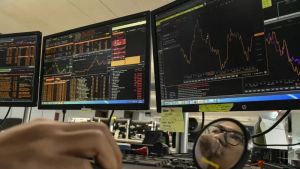Chairman of the Indonesian Chamber of Commerce and Industry, Arsjad Rasjid welcomed the lifting of the Implementation of Community Activity Restrictions (PPKM) which was inaugurated by President Joko Widodo today.
He considered that the decision was the right one.
"The Indonesian Chamber of Commerce and Industry sees that this plan is appropriate, provided that immunity and immunity from the community must still be increased through booster vaccination, which is currently still almost 30 percent as of December 29 yesterday," he said in an official statement, Friday, December 30.
Strengthen MSMEs
Arsjad assessed that the revocation of PPKM would strengthen MSMEs. This is because community mobility will continue to increase so that it has the potential to increase public consumption and also encourage Indonesia's economic growth.
Arsjad said, the opportunity for the business world is also very wide open to starting to operate normally.
Especially at this time, the recovery of MSME performance is one of the main driving forces, given the huge contribution to GDP and employment absorption.
"The revocation of PPKM is also a gateway to wide business opportunities for business actors from the public to remain vigilant and protect the community through booster vaccines must be improved to strengthen community immunity," said Arsjad.
Arsjad hopes that through the policy of completing PPKM, it can spur business actors in Indonesia, especially MSMEs, to always innovate so that they can increase domestic consumption.
Retail and Tourism Sectors Will Grow
According to Arsjad, the revocation of PPKM will be an opportunity for business actors to reorganize their business, especially for business actors who were sluggish due to the impact of the COVID-19 pandemic.
He assessed that the revocation of PPKM would make the tourism and retail sectors stretch again. In 2020, the tourism sector was hit hard but eventually slowly rose.
"When viewed from GDP, the accommodation sector has normal growth throughout 2022. Retail is also the same, it has recovered. Investment is also on target," said Arsjad.
The retail industry during 2022 slowly grew. Indeed, during March 2020 to March 2021, more than 1,500 retail outlets went out of business.
However, now the domestic trade sector is growing well. The Information and Policy Analysis Agency (Good) of Kadin projects that this sector will grow by 4.4 to 4.8 percent in 2023.
Tourism is also seen to be on a positive track. Foreign and domestic tourists have been free to travel in Indonesia, this has prompted an increase in the accommodation, food and beverage sector. Kadin well projects that the growth of this sector can reach 4.2 percent in 2023.
The COVID-19 pandemic has warned countries in the world, including Indonesia, about the importance of strengthening resilience in the health sector.
The health sector still has the potential to continue to develop with a greater emphasis on preventive measures such as vaccines, remote treatments (telemed), and the use of technology for early detection of the disease.
The pharmaceutical and medical device industry is also predicted to continue to develop in 2023. Even though PPKM has been abolished, people's mindsets have changed a lot.
Public awareness of health is much higher than before the pandemic and they tend to be more independent in detecting COVID symptoms using PCR or antigen and seeking treatment.
The English, Chinese, Japanese, Arabic, and French versions are automatically generated by the AI. So there may still be inaccuracies in translating, please always see Indonesian as our main language. (system supported by DigitalSiber.id)












